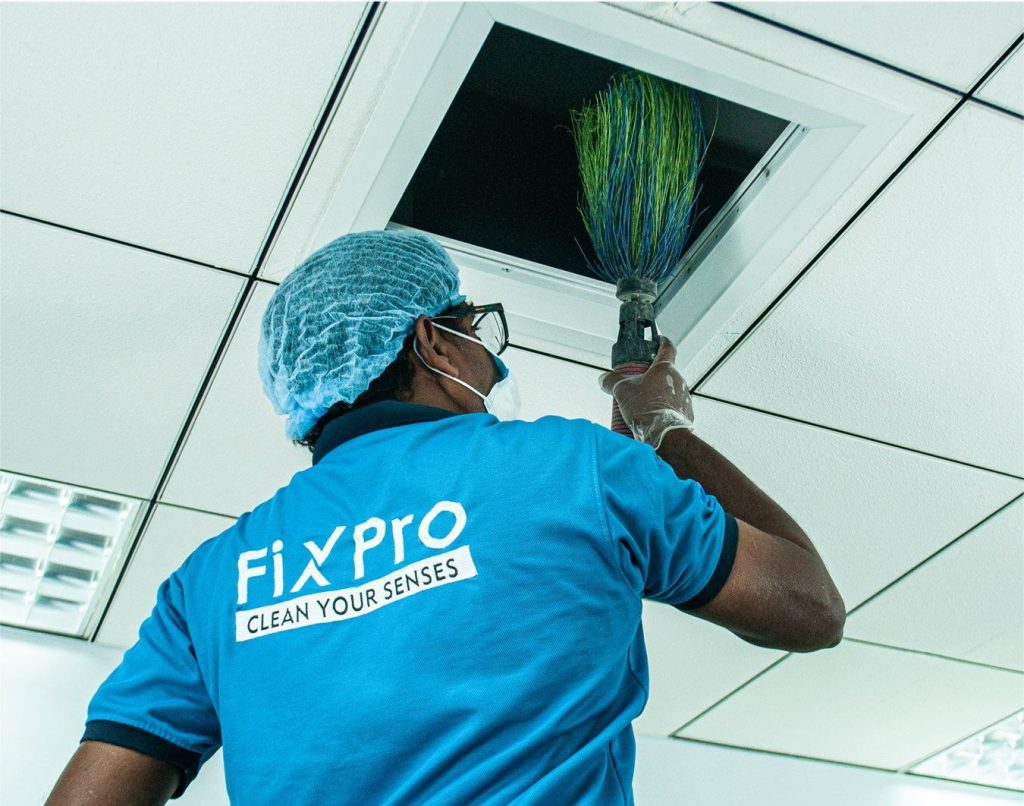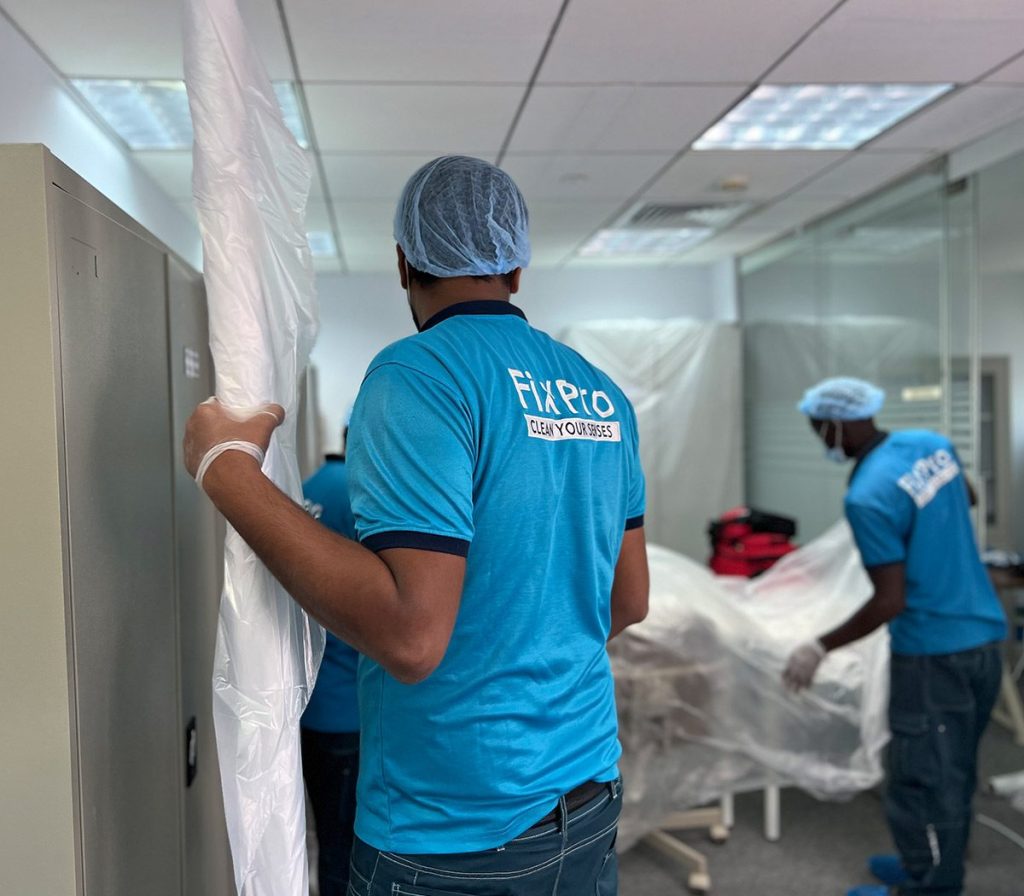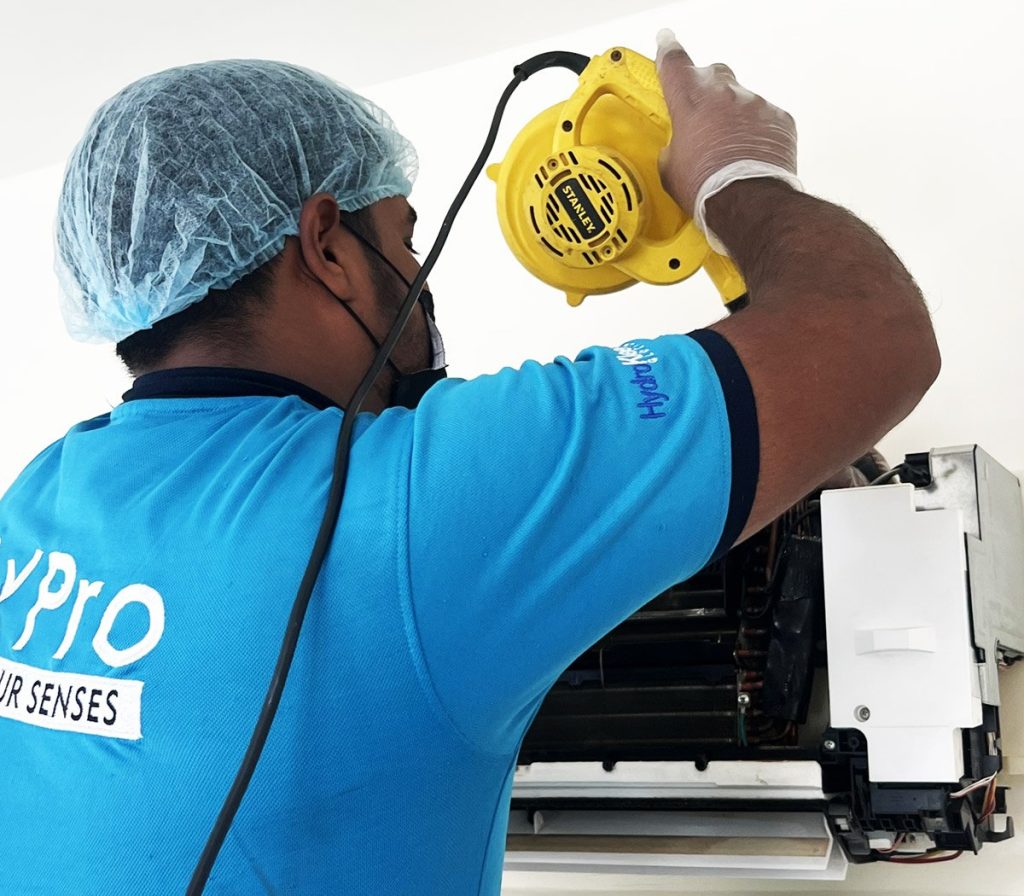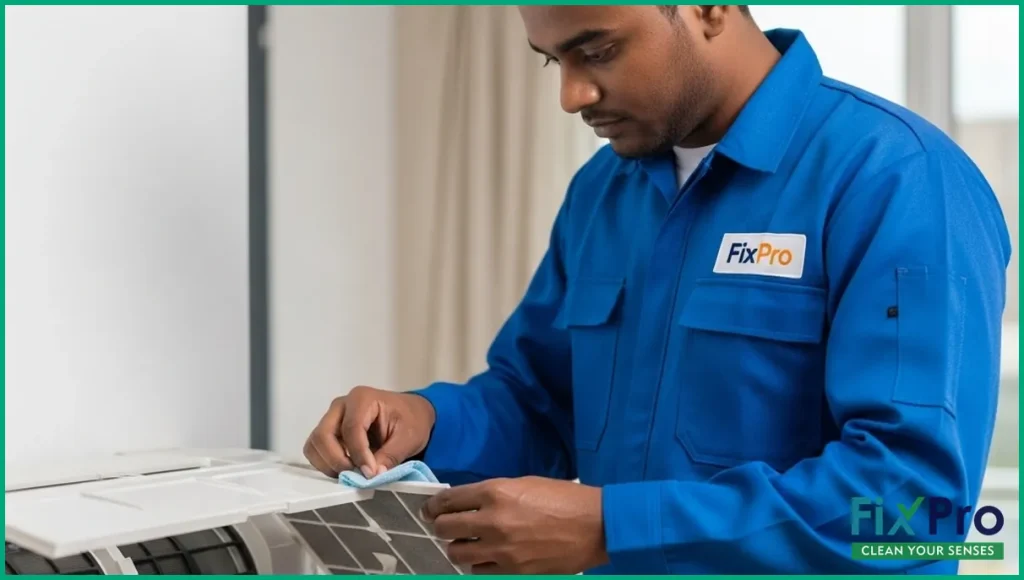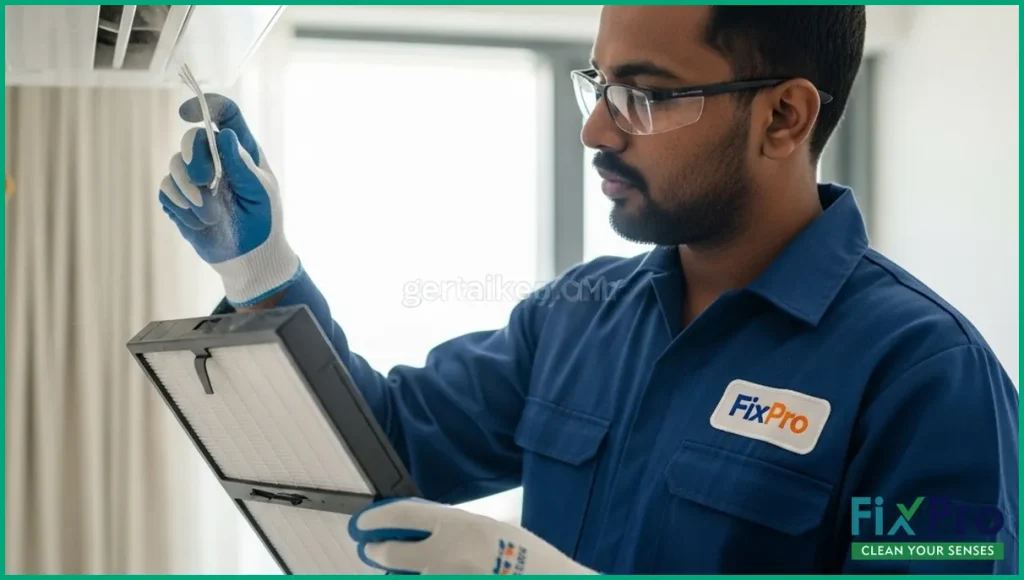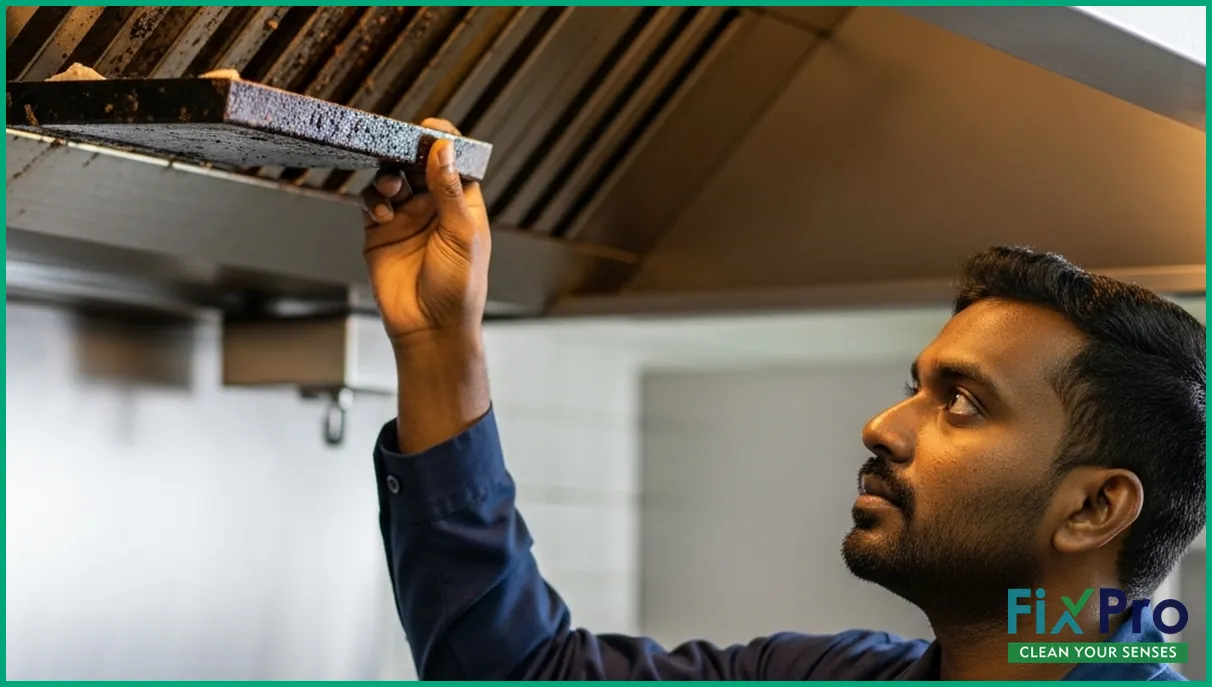
Why Kitchen Exhaust Cleaning Matters
A clean kitchen exhaust isn’t just about hygiene—it’s about safety and comfort. In UAE homes and restaurants, kitchen exhausts work overtime to remove grease, smoke, and odours. Neglecting regular cleaning can lead to fire hazards, poor air quality, and even expensive repairs. In humid coastal cities like Dubai, grease and moisture can build up even faster, making regular cleaning even more critical.
The 8 Most Urgent Signs Your Kitchen Exhaust Needs Cleaning
1. Persistent Unpleasant Odours
If your kitchen smells greasy or smoky long after cooking, your exhaust system may be clogged with old grease and food particles. These trapped residues can create lingering odours that regular cleaning can’t fix. For example, if the smell of last night’s fried fish or grilled kebabs lingers well into the next day, it’s a telltale sign your system isn’t venting properly.
2. Visible Grease and Dirt Buildup
Take a look at your exhaust hood and filters. If you see sticky residue, dust, or dark stains, it’s a clear sign that cleaning is overdue. Grease can drip onto cooking surfaces, making cleanup harder and increasing fire risk. In busy commercial kitchens, this buildup can happen in just a few weeks, especially after preparing dishes like shawarma or deep-fried snacks.
3. Reduced Suction or Airflow
When steam and smoke linger in your kitchen, your exhaust system may be blocked. Reduced suction means air isn’t being pulled out efficiently, which can lead to stuffy air and higher humidity. Try holding a sheet of paper near the vent—if it barely moves, your airflow is weak. This is especially important in open-plan homes, where poor airflow can allow cooking smells to spread to living areas.
4. Excessive Noise or Rattling
If your exhaust fan is suddenly louder, rattling, or vibrating, debris or grease may have built up inside the fan. This can strain the motor and eventually cause breakdowns. Sometimes, loose screws or worn-out bearings—worsened by grease—can also cause unusual noises. It’s wise to turn off the fan and inspect for visible blockages or loose parts before running it again.
5. Smoke or Steam Sticking Around
Notice smoke or steam not clearing after you cook? This usually means the system’s pathways are blocked with grease or dust. It’s especially common in busy family kitchens and restaurants. In UAE villas, where heavy cooking is frequent during gatherings or Ramadan, blocked exhausts can quickly become a problem. Open a window to test if steam clears faster—if it does, your exhaust may be clogged.
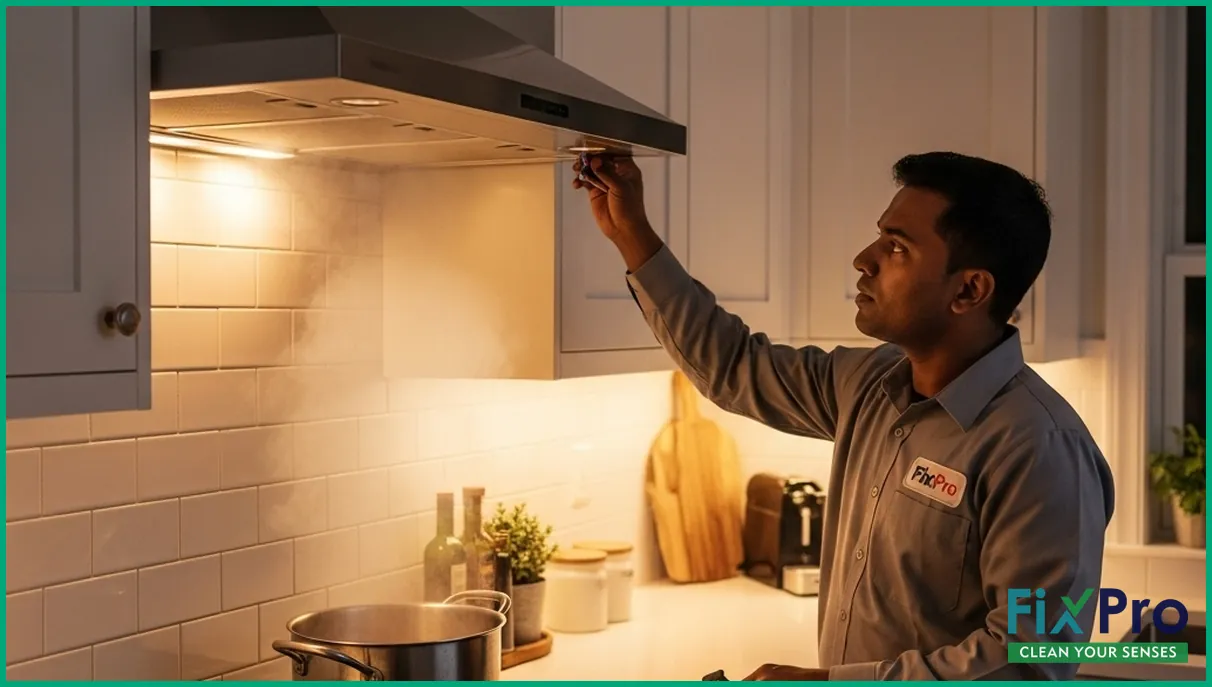
6. Grease Dripping or Staining Walls
Grease stains on nearby walls or cabinets suggest the exhaust isn’t capturing vapours properly. Over time, this can damage paint and attract pests. If you notice yellowish streaks or sticky patches around your cooking area, it’s time to act. In apartments, this can also lead to unwanted odours spreading to neighbours or common hallways.
7. Unusual Burning Smells
A burning smell, especially when the exhaust is running, could mean grease has reached the fan or motor. This is a serious fire risk and needs immediate attention. If you hear crackling sounds or see smoke coming from the hood, turn off the unit and unplug it right away. Call a professional before using it again to avoid potential electrical damage or fire.
8. It’s Been Over Six Months Since Last Cleaning
Even if you don’t notice obvious signs, kitchen exhausts typically need professional cleaning every six months. In busy kitchens, more frequent cleaning may be necessary. Mark your calendar or set a phone reminder to stay on schedule. For commercial kitchens or homes with frequent frying, quarterly cleaning is often recommended.
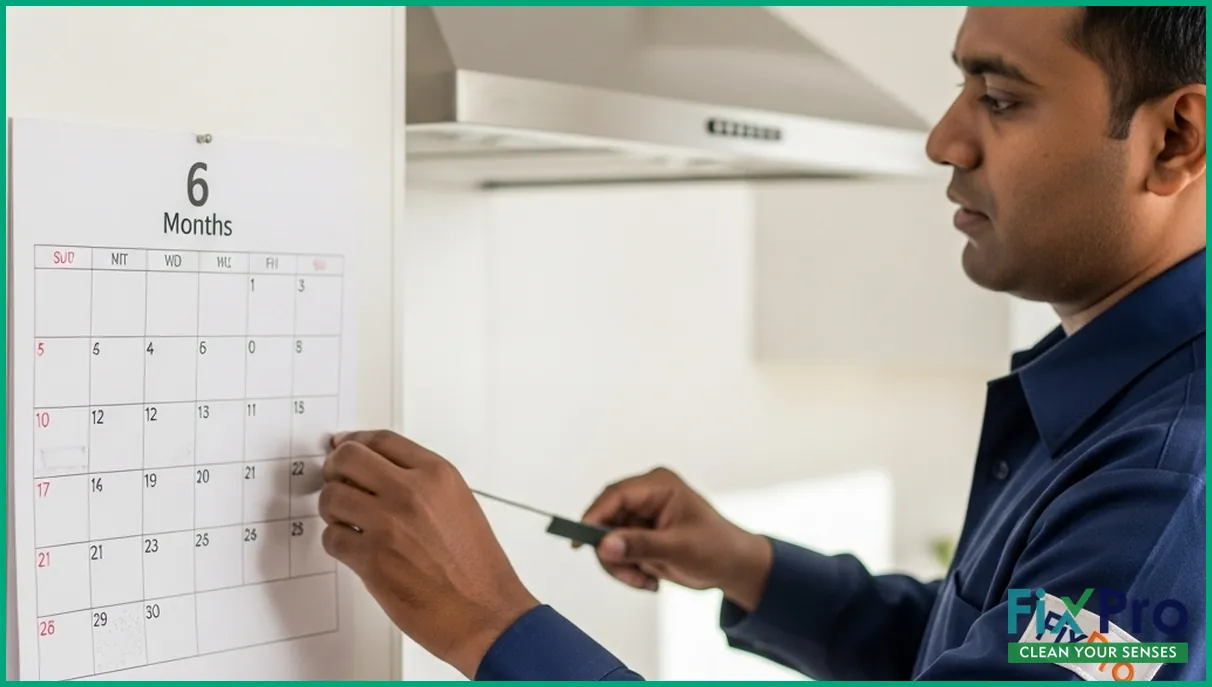
How Kitchen Exhaust Cleaning Compares to Other Home Maintenance
Kitchen exhaust cleaning is often overlooked compared to other maintenance tasks, but it plays a unique role in keeping your kitchen safe and comfortable. Here’s how it stacks up against other common services:
| Service | Main Purpose | Typical Frequency |
|---|---|---|
| Kitchen Exhaust Cleaning | Remove grease and improve ventilation | Every 6–12 months |
| HVAC Maintenance | Ensure efficient cooling and heating | Annually or as needed |
| AC Duct Cleaning | Reduce dust and allergens | Every 1–2 years |
| Water Tank Cleaning | Maintain clean water supply | Every 6–12 months |
| Chimney Sweeping (Villas) | Remove soot and blockages | Annually, especially after winter |
Pairing kitchen exhaust cleaning with other maintenance tasks, like deep cleaning your stove or refrigerator coils, can help streamline your home care routine. In UAE homes, scheduling these services before major holidays or family gatherings ensures your kitchen is fresh and safe for guests.
What Happens If You Ignore These Signs?
Ignoring the warning signs can have serious consequences. Grease buildup increases fire risk and can damage your exhaust system. Poor airflow leads to stuffy kitchens and lingering smells. Over time, you might face costly repairs or even health risks from poor indoor air quality.
- Fire hazards from grease accumulation
- Unpleasant odours and sticky surfaces
- Reduced efficiency and higher energy bills
- Potential pest infestations
- Corrosion or damage to kitchen surfaces and appliances
- Complaints from neighbours in shared buildings due to odours
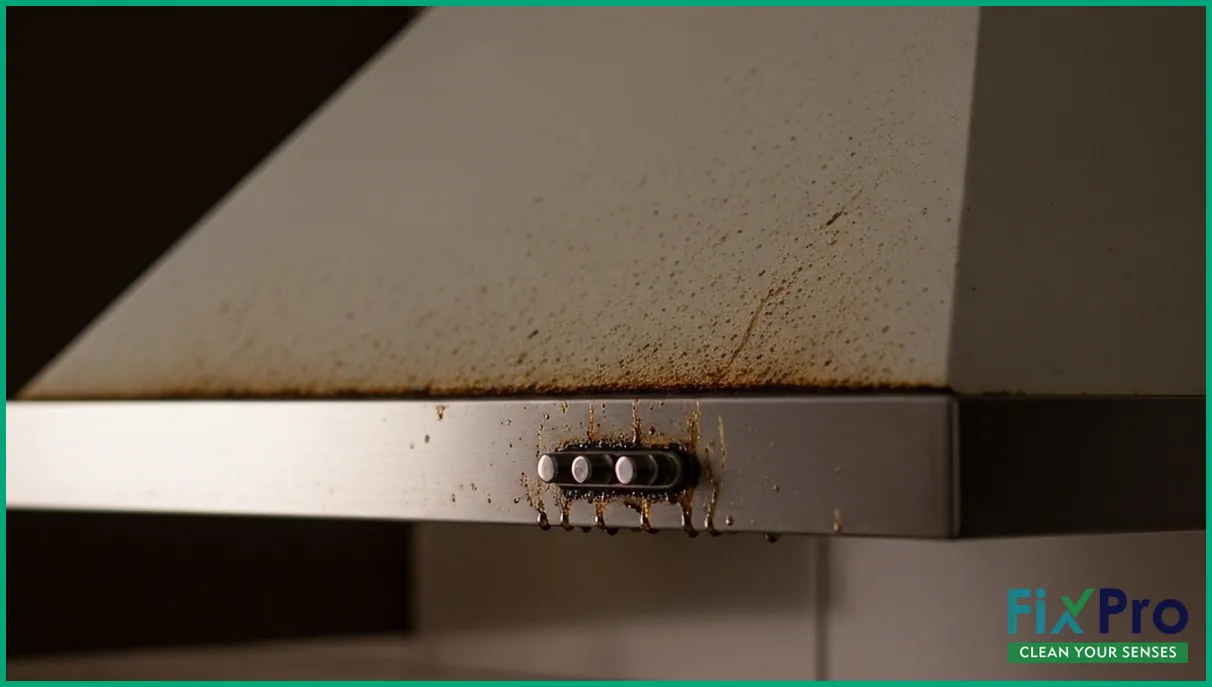
If you’re renting, ignoring exhaust cleaning could result in deductions from your security deposit or complaints from your landlord. For restaurant owners, health inspectors may issue warnings or fines if kitchen exhausts are found dirty during routine checks.
FAQs: Kitchen Exhaust Cleaning
How often should I clean my kitchen exhaust?
Most kitchens need cleaning every 6–12 months. Busy kitchens may need it more often. If you cook with a lot of oil, spices, or grill frequently—as is common in many Middle Eastern homes—consider cleaning every 3–4 months for optimal safety.
Can I clean the exhaust hood myself?
You can wipe the exterior and filters, but deep cleaning is best left to professionals. For a quick DIY clean, unplug the unit, remove filters, and soak them in hot soapy water. Scrub gently with a soft brush, rinse, and let them dry before reinstalling. Avoid harsh chemicals that can damage finishes.
What are signs my exhaust needs urgent cleaning?
Look for grease stains, lingering smells, reduced airflow, and unusual noises from the fan. If you notice smoke backing up into the kitchen or visible oil drops on the stove, don’t delay. For those in apartments, pay attention to feedback from neighbours about odours in shared hallways.
Does a dirty exhaust affect my AC system?
Yes, poor kitchen ventilation can increase dust and humidity, affecting your AC’s efficiency. In UAE’s hot climate, this can lead to higher cooling costs and more frequent AC filter changes. If you notice your AC working harder after heavy cooking, check your kitchen exhaust first.
Is kitchen exhaust cleaning expensive in the UAE?
Prices vary, but most homeowners find the cost reasonable compared to potential fire or repair bills. Some companies offer bundled services for exhaust, AC, and water tank cleaning, which can be cost-effective. Always ask for a detailed quote and check for seasonal promotions.
How should I prepare for a professional cleaning?
Clear the area around your stove and exhaust hood. Remove pots, pans, and utensils. Cover nearby surfaces with a cloth or newspaper to protect against drips. If possible, run your exhaust fan for a few minutes before the technician arrives to loosen debris. Make sure pets and children are kept away during the service for safety.
Are there regional differences in kitchen exhaust maintenance?
Yes, homes in coastal areas like Dubai and Abu Dhabi may experience faster grease buildup due to humidity. In desert regions, dust can mix with grease, making filters clog more quickly. Adjust your cleaning schedule based on your location and typical cooking habits.
Methodology & Limitations
This article is based on common experiences from UAE homeowners, professional cleaning practices, and typical industry advice. We reviewed sources such as home maintenance guides, technician insights, and real-world case studies. However, exact cleaning frequencies and warning signs may vary depending on your kitchen’s usage and design. When in doubt, consult a qualified professional.
Ready to Act? Here’s Your Next Step
If you’ve noticed any of these warning signs, don’t wait for problems to get worse. Schedule a professional kitchen exhaust cleaning to keep your kitchen safe and comfortable. fixpro offers reliable solutions for homes and businesses across the UAE. For ongoing safety, consider pairing exhaust cleaning with regular AC and duct maintenance for the freshest indoor environment.
After cleaning, enjoy cooking your favourite dishes—like fresh flatbreads, grilled meats, or aromatic curries—knowing your kitchen is safe, comfortable, and ready for guests.
